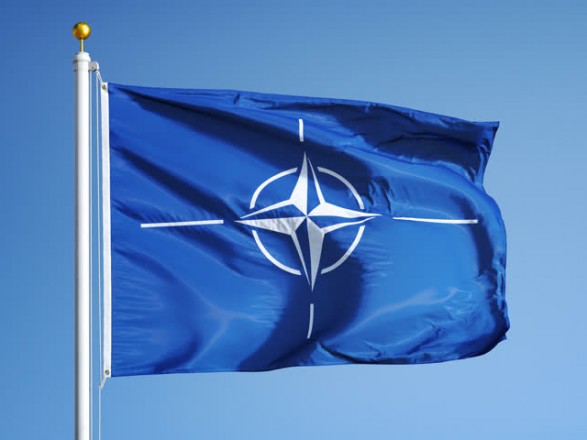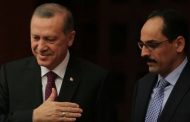KYIV. UkraineGate , 29 , March , 2022 | Political News .
Disagreements have arisen among NATO members over Ukraine’s talks with Russia, dialogue with Vladimir Putin, and arms supplies to Kyiv
Quote
“As NATO allies discuss the terms of any potential peace agreement between Russia and Ukraine, there are signs of a strategic split in their ranks. Ukraine can consider it acceptable for any agreement, especially with regard to security guarantees that the members of the alliance can offer to Kyiv, “the agency writes.
Details
There are also disagreements over what additional weapons to send to Ukraine, and whether or not a conversation with President Vladimir Putin is useful, according to people familiar with last week’s discussions between leaders on both sides of the Atlantic, and documents read by Bloomberg.
Yes, France and Germany tend to believe that the parties “should not aggravate the situation in words or actions.” According to them, this will allow for a ceasefire and then the withdrawal of Russian troops “through diplomacy.”
In particular, at a summit of NATO leaders last week, German Chancellor Olaf Scholz warned against hasty action, such as abandoning the Russia-NATO Founding Act. According to two sources familiar with the negotiations, the rejection of this agreement will forever close the door for Moscow and remove the obligation to deploy forces that bind both sides.
While Russia has burned all bridges for cooperation in the near future, the German government sees the possibility that the Basic Act and its guidelines may still be needed someday, one source said. Another said that abandoning him would be a symbolic gesture that would not help stop the war. In the end, the allies will have to find a way to reach an agreement with Putin on whether they like it or not, another official added.
This week, Italian Prime Minister Mario Draghi is expected to talk to Putin and call for a ceasefire and the creation of humanitarian corridors.
Other NATO members say the Paris-Berlin dialogue with the Kremlin is counterproductive and could play into Putin’s hands, according to a document leaked to reporters.
According to the same document, the United Kingdom, Poland and other Central and Eastern European countries, with the exception of Hungary, are skeptical that the Russian president is serious about negotiating an acceptable peace agreement.
At the NATO summit, Polish President Andrzej Duda asked other leaders if they really believed that negotiations on Putin’s terms could be successful and acceptable, according to people familiar with his remarks. Anyone who supports these conditions will support Russia, one source said.
Those who push Ukraine for a peace agreement without the complete withdrawal of Russian troops “serve Putin,” said a diplomat from an Eastern European country, and those who turn to Putin often “do so only for the purpose of their campaign” inside the country.
According to another source, the Prime Minister of the United Kingdom Boris Johnson was also skeptical of Putin’s intentions. On the eve of the meeting, Johnson told reporters that Putin’s actions in Ukraine have already crossed the red line.
“It is right to make the most of any possible settlement through negotiations, but it is clear that we must be aware of the fact that he has not kept his promises. We have seen Putin say one thing and do another, so we need to judge him and his regime. after they act, “Prime Minister’s Spokesman Max Blaine said Monday.
According to a high-ranking British official, despite the setbacks on the ground, Britain does not believe that Putin’s strategic goals have changed.
Two other senior diplomats from a group of countries questioning dialogue with Putin told Bloomberg that they were concerned that Macron could push Zelensky to agree to neutrality on Russian terms in exchange for a ceasefire. However, they noted that Macron clearly denied Moscow’s demands for Ukraine’s territorial integrity and sovereignty.
One of the diplomats said that open questions about Ukraine’s territory for future diplomatic talks risk repeating past mistakes and complicating the scope of any security guarantees. A senior Western European official has questioned whether the guarantees will apply to Ukraine’s internationally recognized borders or to those that will emerge after the war, according to another document read by Bloomberg.
Macron said he was talking to Putin because Zelensky had asked him to, as well as try to secure humanitarian corridors. According to a source in diplomatic circles, Macron could also pass information to the Russian president about how bad the war is for his troops, as his entourage probably hid the truth from him.
Another area of disagreement between the allies is how much they should arm Ukraine, as some fear that Putin may use weapons of mass destruction. Allies are also adamant that they will not consider any direct NATO military involvement in the war.
Leaders of Britain, the Baltic states and most Eastern European countries have called on allies to send more weapons to Kyiv, including air defense, to allow Ukrainian forces to continue repelling Russian attacks and bombs.
The high-ranking official told his colleagues that Putin does not need an excuse if he wants to act, he will just invent it, according to one of the documents available to Bloomberg. Although they have provided military support to Ukraine, some Western European governments have noted that there are restrictions on the types of weapons that can be provided due to fears that events could spiral out of control, the document said.
The French official said that the sending of tanks – which Macron had publicly ruled out – and planes would add fuel to the fire and play into the hands of supporters of the hard line in Moscow.
Asked what Macron called weapons such as tanks a red line, Zelensky told the Economist that France was afraid of Russia and that Boris Johnson was a leader who helped more.
Source: UKRGATE







